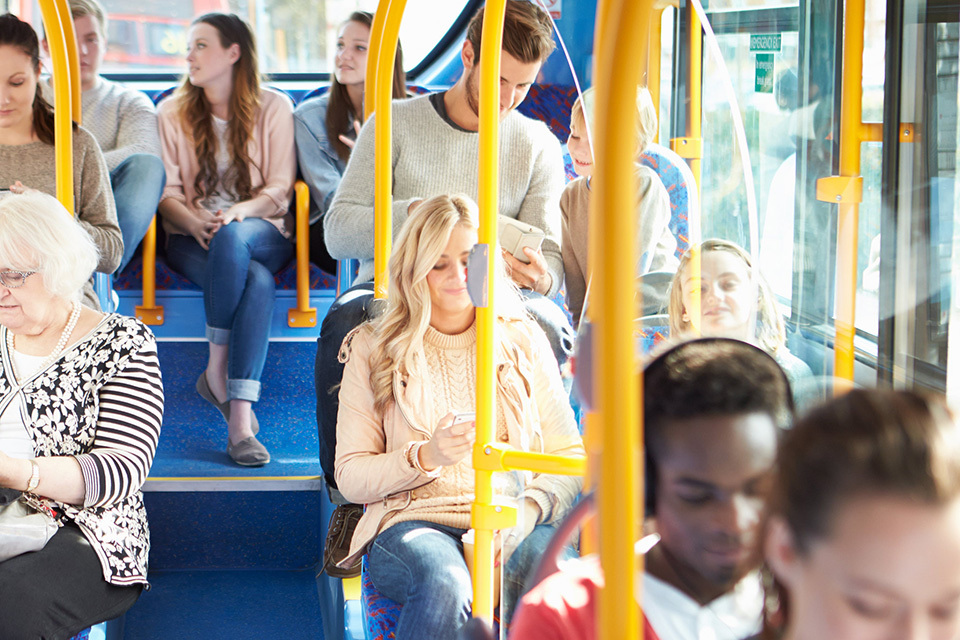- single bus fares to be capped at £3 until the end of 2025, ensuring services remain affordable and supporting travel in rural areas and towns
- fare cap extension comes on top of nearly £925 million invested to deliver high quality services and protect vital bus routes up and down the country
- part of government plans to end the postcode lottery of bus services, ensure access to opportunities and deliver growth
Millions of people will enjoy better bus services as the government invests over £1 billion to protect vital bus routes and cap bus fares, particularly in rural communities and towns where there is a heavy reliance on buses.
Prime Minister Keir Starmer confirmed today (28 October 2024) that bus travel will be kept down at £3 at the Budget for an additional year – saving up to 80% on some routes.
Under the inherited plans, funding for the current cap on bus fares had been due to expire at the end of 2024, with fares set to soar by as much as £13 for the Leeds to Scarborough route, unless the government intervened to keep fares down.
The government’s announcement will ensure fares remain affordable from 1 January 2025 and prevent a financial cliff-edge for bus operators that would have seen vital services put at risk across the country.
The £3 maximum fare cap will keep bus travel affordable while ensuring the cap is fair to taxpayers, helping millions of people access better opportunities and protect vital bus routes, particularly lifeline services in rural communities.
The cap will mean no single bus fare on routes included in the scheme will exceed £3, and routes where fares are less than £3 will only be allowed to increase by inflation in the normal way. Local authorities and Metro Mayors can also fund their own schemes to keep fares down, as is already the case in London, West Yorkshire and Manchester.
Some of the biggest bus savings on some key routes up and down the country include:
| Journey | Normal fare | Amount save under £3 cap | % saving under £3 cap |
|---|---|---|---|
| Newcastle to Middlesbrough | £8.00 | £5.00 | 63% |
| Hull to York | £8.50 | £5.50 | 65% |
| Leeds to Scarborough | £15.00 | £12.00 | 80% |
The cap is being funded by £151 million from government until the end of 2025. It comes as the Department for Transport confirms an additional £925 million for the 2025 to 2026 financial year to improve bus services across the country, bringing total bus investment at the Budget to over £1 billion.
Local authorities can use the £925 million to introduce new bus routes, make services more frequent and protect crucial bus routes for local communities.
Moving forward, the government will also explore more targeted options that deliver value for money to the taxpayer to ensure affordable bus travel is always available for the groups who need it the most – such as young people.
Transport Secretary Louise Haigh said:
Buses are the engines of economic opportunity across the country.
We know that reliable, affordable bus services are vital to keeping Britain moving. That’s why the government will cap fares at £3 for an additional year and provide over £1 billion to deliver better bus services.
This will avoid a cliff-edge at the end of this year and keep fares affordable across the country – improving access to opportunities, particularly in towns and rural areas, while offering value for the taxpayer.
Our bus revolution will give every community the power to take back control of their services, end the postcode lottery of services and turn the page on 4 decades of failed deregulation.
The move comes ahead of the new Buses Bill, to be introduced later this parliamentary session, which will help bring an end to the current postcode lottery of bus services by empowering local authorities to deliver modern and integrated bus networks that put passengers at the heart of local decision making.
The bill will mean local transport authorities can emulate the huge success of publicly controlled buses in Greater Manchester and London. Greater Manchester’s successful Bee Network has already seen passenger numbers grow by 5% since public control began to be rolled out just a year ago.
Buses remain the most used form of public transport across the country, but – after almost 4 decades of failed deregulation – thousands of vital services have been slashed, with passengers left frustrated at the lack of accountability.
Since 2010, the number of miles driven by buses has plummeted by around 300 million. The transformative work this government is doing will turn the tide by giving communities access to reliable and affordable services and the opportunity to have a real say in building local transport networks that work for them.
David Sidebottom, director at the independent watchdog Transport Focus, said:
We know that bus passengers want simpler, better value for money fares and buses provide a lifeline for so many people up and down the country. Our research shows the fare cap is having a big impact in helping more people get around by bus.
We welcome the wider investment in services, and the announcement of a new £3 cap on bus fares will provide certainty for many people who are struggling and worried about the cost of travel.

